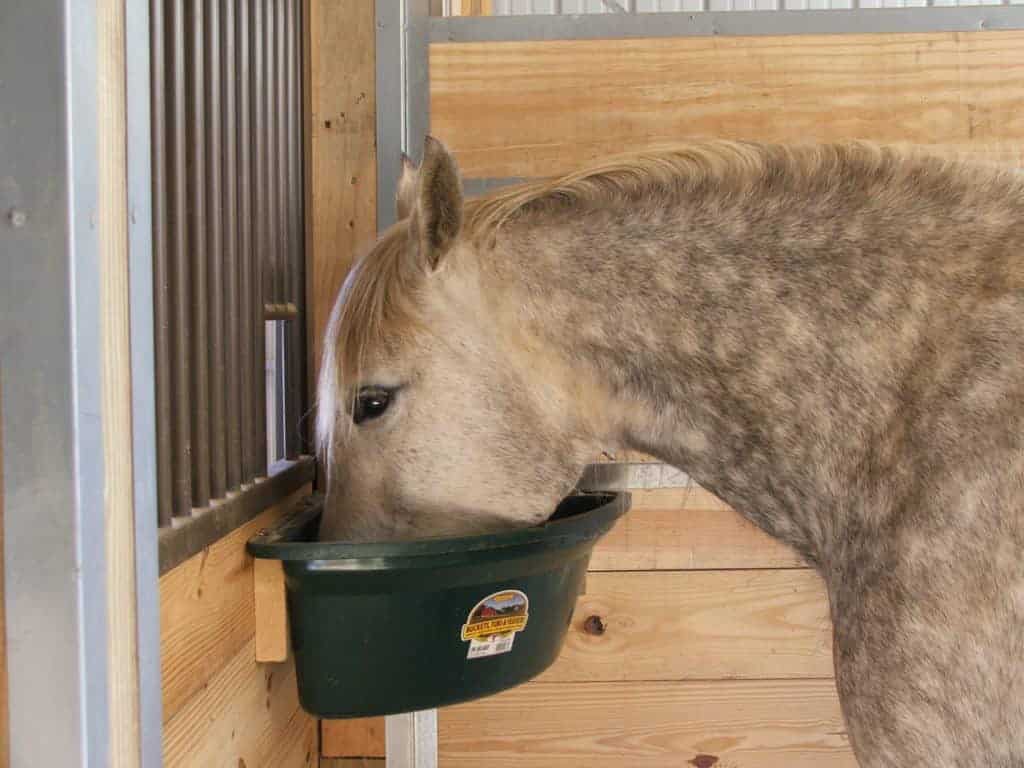
Blood Tests and Balanced Equine Diets
Dr. Clair Thunes shares information about how blood tests can help ensure your horse is getting the nutrition he needs.

Dr. Clair Thunes shares information about how blood tests can help ensure your horse is getting the nutrition he needs.

Oxidation is a normal process a horse’s body uses to transform nutrients such as carbohydrates, fats, and proteins into energy, but it also results in oxidative damage. Fortunately, antioxidants can help. Here’s what you need to know about the important damage fighters.

Sweat contains electrolytes (including sodium and chloride), so heavily exercising horses have significantly higher dietary requirements for both minerals than their idle counterparts. Here’s what to know.

Does your horse’s drinking water have high iron levels? If so, he might be at risk for chronic illness or even death, researchers found.

Magnesium is an important mineral for horses because it plays a role in muscle contractions and activates many enzymes so they can perform their duties.

Equine nutritionists share details about how your horse’s feed is made and what quality controls are in place to ensure he’s consuming a safe product.

Any good feeding program meets the nutrient needs for the animal, maintains a healthy digestive system, and offers feeds of the highest quality. Does your horse’s diet include the required nutrients?

Commentaries on cleaning feed buckets, botulism, beet pulp, hay, and more were popular in 2018.

A user in a wildfire-affected area asks if supplements can help support her horse’s respiratory system.

Vitamin E deficiencies can cause neurologic and other health problems in horses. As such, at-risk horses—from breeding stock and foals to equine athletes and pasture pets—might benefit from supplementation.

Phosphorus is the second most abundant mineral in the horse’s body; about 80% of it is found in horses’ teeth and skeleton.

Young growing horses, late-gestation broodmares, and lactating mares have higher calcium requirements than the average mature horse.

Early signs of fluorine toxicosis in horses can include unthriftiness, standing with an arched back, rough hair coats, bone thickening, stiffness, and lameness.

Magnesium, an important macromineral found in most feedstuffs, plays integral roles in muscle contraction, skeletal growth, and a variety of enzyme systems, such as those involved in energy production.

Cobalt is required in very small amounts in the equine diet.

As an essential trace element for horses, chromium plays roles in the communication between insulin and insulin receptors, lipid metabolism, and immune function.
Stay on top of the most recent Horse Health news with
"*" indicates required fields